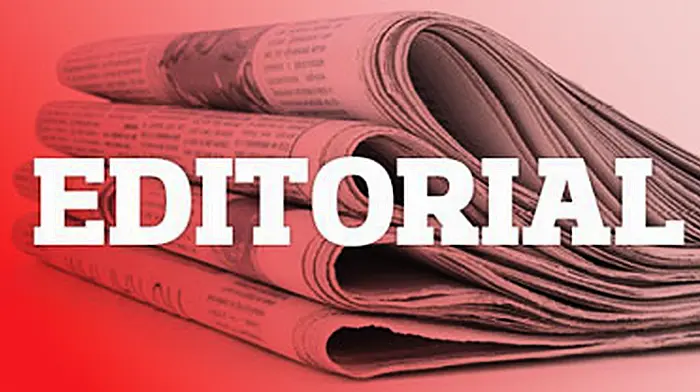AS WE face into the depths of winter and several weeks of Level 5 – and maybe more serious – lockdown, one has to question whether the easing of restrictions on December 1st last was a wise decision. The frightening rapid surge in new cases of Covid-19 over the Christmas period would tend to indicate that it was not, with the benefit of hindsight, but it is so easy to be wise after events and the government knew it was taking a gamble as it tried to balance the health of the nation with its economic wellbeing.
From a commercial standpoint, much of the Christmas retail spend was salvaged. Ironically, a lot of people who wanted to celebrate its true spiritual meaning were deprived of doing so by restrictions on numbers allowed to attend religious services.
Anecdotally, at this stage it would appear that huge numbers of people did not properly heed the appeals from the National Public Health Emergency Team to limit contacts between households over the Christmas period, which is the most likely explanation for the serious new year surge in new Covid-19 cases. This is stretching our hospitals’ capacity and putting unbearable pressure back on the frontline staff that people were hailing as heroes last year, but don’t seem to get it that irresponsible behaviour which leads to the spread of the virus is like a slap in the face to the hospital personnel struggling to cope; utter hypocrisy.
The more transmissible strain of the coronavirus that was detected in the UK before Christmas has spread widely, including Ireland, and this has escalated the incidence of the disease here, hence the need for more vigilance now. As chief medical officer Dr Tony Holohan advised, we should assume that everyone is a carrier of the virus and act accordingly, not allowing others into our houses, only going out for essential purposes, wearing a mask and observing social distancing of 2m, exercising within 5km of our homes and practising good hand hygiene and respiratory etiquette – the basics are even more important than ever now.
While it is great to see the beginning of the roll-out of Covid-19 vaccines – which were developed in record time through the commendable meitheal of worldwide co-operation between medical researchers and pharma giants – it will be quite some time before enough of the population is vaccinated in order to ensure its efficacy. It is not the quick fix some people seem to think it is; the virus is not going away anytime soon, so ongoing vigilance to prevent its spread is as necessary as ever and this will continue for the foreseeable future.
The re-opening of schools after the Christmas holidays, though deferred, could add to the new cases and teachers in the frontline are right to be concerned about their safety in the light of the more easily-contracted strain of the coronavirus doing the rounds at present.
It could be the end of the coming summer before we can get back to the normality of old that people so crave and, as the old saying goes, there is many slip between the cup and the lip, so hopefully nothing untoward will happen between now and then with the vaccine roll-out. The next few weeks and months will be crucial in our battle to suppress the virus and, while people are understandably fatigued by the pandemic, there is a need for one final push to get the case numbers back down to more manageable levels.
People simply cannot continue acting as if there is not a problem and that the arrival of vaccines is the cure-all. The ball is in our court now in order to ensure that this is the final wave of the coronavirus and, over the coming weeks, the country needs public buy-in of the type we had last April-May to suppress Covid-19 and the sooner we get this, the earlier the government can begin to ease restrictions – something that needs to be done gradually for best effect.
The criteria for this need to include targeted figures across all the metrics NPHET uses – such as deaths, new case numbers and their 14-day incidence rate, hospitalisations and numbers in ICUs, the ‘R’ number, etc – rather than just setting a date when restrictions will be reduced. When such targets for suppressing the virus are met, only then should the restrictions be eased.
That certainly would focus people’s minds and give them an incentive to properly play their part in the general effort required to suppress the virus. It really is up to all of us to do our bit to create the scenario that will allow the current restrictions to be relaxed as soon and as safely as possible.








